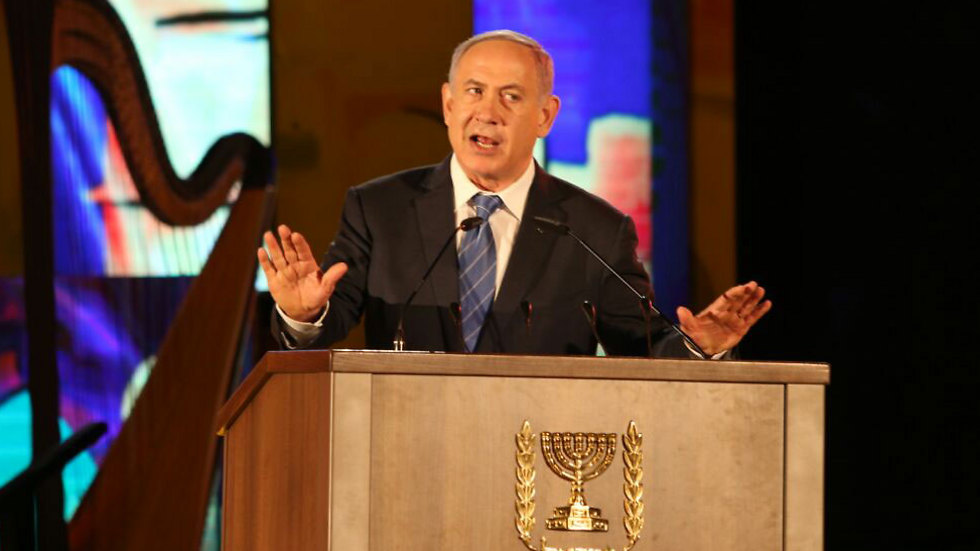Op-ed: Dennis Ross and David Makovsky may correctly diagnose Israel’s diplomatic problems, but their offered solutions are decidedly wrong-headed. The real question Israel is facing now is its willingness, or lack thereof, to avoid turning into an apartheid state in the future.
Dennis Ross, 68, has filled a lot of positions in American peacemaking envoy-teams ever since the Oslo Accords. David Makovsky, 56, was a senior member of the American peacemaking team during the days of the Kerry initiative. The two recently jointly wrote an article that was published by the Washington Institute for Near East Policy (WINEP) in late May. The article was written in reaction to the failed political negotiation between Zionish Union party Chairperson Isaac Herzog and Prime Minister (and Likud party Chairperson) Benjamin Netanyahu.
In the article, Makovsky and Ross decried the behavior by Zionist Union MKs who refused to join the coalition. “Saying no to Netanyahu appears to be more important to them than breaking the stalemate with the Palestinians and defusing the international delegitimization movement against Israel,” they wrote.

The article is worth mentioning for several reasons. First, the two have a decades-long familiarity with the Middle East’s “major players”, as well as those of the US and Europe; second, because their opinions can have an influence on decision makers. Third, Mike Herzog, Isaac’s brother, currently works at the WINEP, and is trying to promote his sibling’s position with Makovsky and Ross’ help; and fourth, because it’s apparent that they’re writing from the heart. Israel is really important to them.
And they’re wrong. And not merely wrong, but representative of a classic case in which an experienced team of doctors offers a correct diagnosis, but picks an awful course of treatment. They’re prescribing aspirin to a terminally ill patient.
“(Netanyahu’s) room to maneuver on the international stage has already shrunk dramatically since the Herzog talks collapsed two weeks ago,” they write. “Between 2009 and 2015, when Netanyahu led a broader coalition with parties on his left and right, he had political space to maneuver and took advantage of it at times (e.g., by issuing a moratorium on some settlement construction in 2009-2010 and releasing pre-Oslo prisoners). Now he has no such space. Without a broadened government, he will likely be unable to demonstrate publicly that Israel’s settlement policy is being brought into line with his professed desire for a two-state outcome. And without such an initiative, the government will be hard pressed to prevent international efforts to address the Israeli-Palestinian issue.”

And this is happening, the two bemoan, right at the time when regional parties – such as al-Sisi’s Egypt – are showing a willingness to give an Israeli initiative a chance, thus avoiding the possibility of an agreement being forced upon the Jewish state. Poor al-Sisi, he’s barely holding on in Cairo, but he’s still willing to promote peace in Israel.
Ross and Makovsky’s diagnosis speaks of several developments, which they believe scare PM Netanyahu: The Obama administration may remove its veto of international initiatives, which could cause the French to convene a second Paris conference, which could lead to a IN Security Council resolution enforcing the new peace plan by year’s end.
Why is this bad? In their opinion, there are four reasons: Demands of Israel will be concrete and those made of the Palestinians will be vague; Russia and other Security Council members will support any Palestinian demand; success will convince the Palestinians to toughen their stance; and the right-wing government in Israel will become entrenched in its positions. The next US administration will get stuck with a policy that cannot be implemented.
So much for the diagnosis. Their solution is to resume the peace process. “To avoid internationalization,” they write, “(Netanyahu) will need to go over the heads of politicians at home and publicly explain the stakes to the Israeli people.” The clandestine attempt to reach an understanding with Herzog about the settlements failed, they write. If Netanyahu wants to avoid the internationalization of the conflict he must publicly announce that he will stop construction beyond the separation fence.

Indeed, a public announcement of a construction freeze would generate a crisis in the coalition: Netanyahu would be able to swallow Bayit Yehudi’s threats to leave the government, but he will find it hard to withstand threats coming from the radical right wing of the Likud. He’s no Ariel Sharon. But these are trifles compared to the big question hovering over the conflict: What is the peace process worth when everyone knows there will be no peace at its end? This is a process that leads nowhere.
The peace process is a great excuse: It allows Dennis Ross and several of his colleagues to repress their historical failure; it lets John Kerry feel that he almost touched the Nobel Prize; it allows Benjamin Netanyahu to nurture the process for its own sake, not as a means to reaching a solution but as an alternative to a solution; it allows the leaders of the Labor Party to pave their way to a government in which they will be a lame appendage, a fig leaf used by the government to lend legitimacy to itself in the eyes its international critics.
Currently there is no peace, and there isn’t even a process. In light of this reality, the question is this: What is Israel willing to do in the field, unilaterally, now, in order to avoid becoming a bi-national, apartheid state? This is the question Herzog must ask Netanyahu. This is the question that the world will eventually ask Israel.
As reported by Ynetnews
